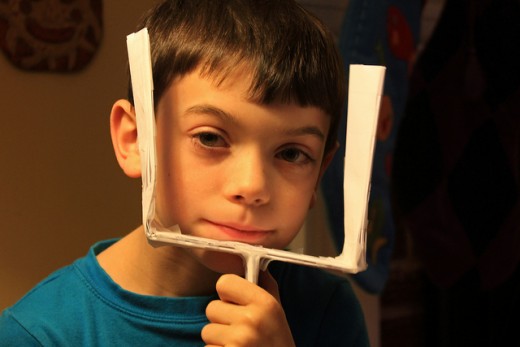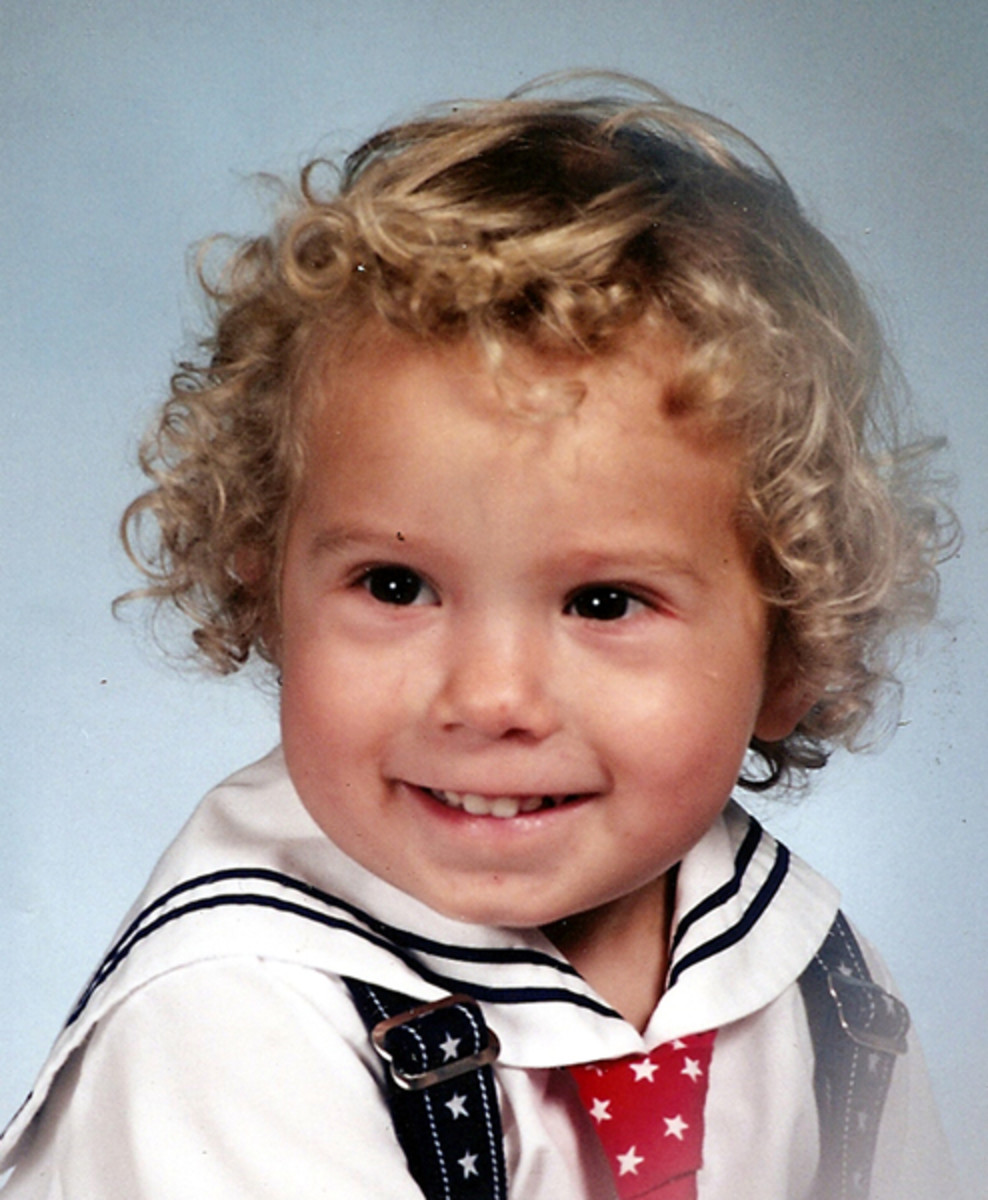How to Set Parenting Goals

Unrealistic parenting goals.
When talking about parenting goals, I think we're really speaking of setting goals for our children. As parents, it is our job to guide our children and give them the tools to reach those goals. Everybody has goals for their children. The minute a child is born his parents have already envisioned his future. They will follow the Ferber Method, teaching him to sleep through the night right away. They will set clear boundaries and be the best parents possible. Their son will have a lot of friends and be very athletic or gifted. Certainly, he will do well in school. He will be happy-go-lucky and a natural-born leader. Of course he will be captain of the football team because his father was captain of his football team. He will be very handsome and will most likely date the prom queen. He will excel at high school sports and academics. After a successful high school career, he will get an athletic scholarship to a prestigious university. He'll attend grad school at Harvard, have a successful career and then become President of the United States. Everyone will regard his parents in awe and wonder how they bred such excellence. Yes, everybody has goals for their children.
Get the full report from CSS: College Sports Scholarships
Related article from The Harvard Crimson
Reality check.
Some kids follow a path like that. Most, however, don't. It's best to look at the numbers. According to the NCAA, less than 5.8% of high school football players become college football players. Does your daughter play high school basketball? The same NCAA report says only 3.3% of high school girls basketball players will earn a NCAA scholarship. I point this out because, it's a cliché, but really, if I had a dime for every parent that thought they had a superstar, future collegiate athlete on their hands, I would be very rich. I actually briefly met a family who has their child enrolled in online courses for high school so that she may devote more time to athletics. Their child is talented but her diminutive stature will most likely impede their lofty goals for her. I couldn't help but think their unrealistic goals were going to cause this child a lot of heartache down the road. It's tough to get a college scholarship but it's also difficult to get into Harvard. In fact, according to an article in The Harvard Crimson (see link) they will be accepting a record low of 6.2% of applicants to the class of 2015. It's important to know that not every child can grow up to be the football captain, valedictorian, Ivy League graduate, college athlete, Oscar winning actor, or President. As parents, it is our responsibility to set realistic, obtainable goals for our children.

How to set realistic goals for your child.
My kids are now teenagers. One of the most helpful books I have read is called "Raising Resilient Children" by Robert Brooks, PH.D., and Sam Goldstein, PH.D. I guess I should confess: I was going to be the perfect parent with the perfect children. The funny thing is, my beautiful children came into the world and, thank goodness, had other ideas. They are both bright, quirky, and talented; making us laugh often. We didn't end up with little carbon copies of ourselves, we ended up with two glorious individuals who are, thankfully, different than their parents.
Soon, we learned the realities of parenting. Around kindergarten, we noticed our son was having difficulty staying focused and on-task in school. He had the same issue in extra-curricular activities. Thrown for a loop, we blamed the school. Our son was and is extremely intelligent. He began talking at 9 months. He was reading very well by 4 years old. If a child that smart couldn't pay attention in class, we reasoned, there must be something wrong with the teacher. By third grade, after seeing him struggle with learning and then anxiety, we took him to a doctor and discovered he was one of 11.2% of boys diagnosed with ADHD. (Centers For Disease Control And Prevention, November 17, 2011) We had never envisioned our child having to deal with such a hurdle. We sought medical help and read books. That's when I discovered "Raising Resilient Children". I wanted both of my children to succeed and be happy regardless of any circumstances. The chapter on developing appropriate expecations and goals by accepting our children for who they are was very helpful in helping us to deal with ADHD and any other obstacle that came our way.

Acceptance
"Acceptance is the link between parents' love and the process of defining realistic, attainable goals and expectations for their children," write Brooks and Goldstein. In other words, you need to accept who your child is and who you are in order to set goals and expectations. In some cases, maybe a 4 year old is more capable at doing something than an 8 year old. It all depends of what type of child they are. Every child is unique and parents should shape their expectations based upon the wonderful individuality of their child. Brooks and Goldstein say there are four steps to developing an accepting mindset with your children.
- Become educated. Brief yourself on the different kinds of children and their unique qualities. Not all kids are the same. Remember the movie "Stepford Wives"? Homogeneous and perfect is not necessarily good. The world needs unique. If your child does have something like ADHD, they're in good company. According to ADHDstrategies.com, there are many notable people with the condition. Included in the roster are Albert Einstein, Henry Ford, Michael Jordan, and Ernest Hemmingway.
- Measure your mindset. This is where you assess what you hoped your child would become versus what your child emerged as. So, maybe you envisioned an outgoing athlete but your child is thoughtful and enjoys playing piano. You need to get over your expectations to have a proper mindset toward your child.
- Make necessary adjustments. If your expectations are different than reality then you need to make an adjustment. Remember, the goals you are setting are about your child and not yourself. You shouldn't impose your will upon your child just to make yourself feel better. I guess this is kind of another reality check.
- Begin the process of collaboration. This is where the authors suggested parents work with their kids to set goals together. Obviously, as a parent you will have to do a lot of the leading but, if a child feels involved they are more likely to be successful and resilient.

Set your goals.
Now that you've and your child are together it's time to set your goals.
- Make sure to write everything down. Perhaps you could each write goals for yourselves and then compare and offer suggestions to one another.
- Remember when you were a kid and it seemed like a month was the same as forever? Your younger children probably feel the same way, so make sure to keep their goals to time periods they can understand.
- Keep track of progress and reward for achieving your goals. Maybe evaluate the goals together every week and if it's a general success, have a little celebration. Maybe a family movie night. When my kids were younger, I had a privilege box. When they achieved a goal or did something worthy, they could pick a privilege. Some of the privileges were, a family pillow fight, one hour alone-time with Mom or Dad, or a trip to the pond to feed the ducks.
- As hard as it is, let your kids do most of their goal setting and you do most of yours. How else are they going to learn to do it on their own?
Setting realistic parenting goals for you and your child can seem daunting but it is a skill that will strengthen you both in the long run. Plus, it's just one more way to get to know your real child and enjoy your time together. After all, they are only children for a little while.
Source
Brooks, Robert, and Sam Goldstein. Raising Resilient Children. Contemporary Books, 2001.
Article ©Denise Mai, May 3, 2012. All rights reserved.









